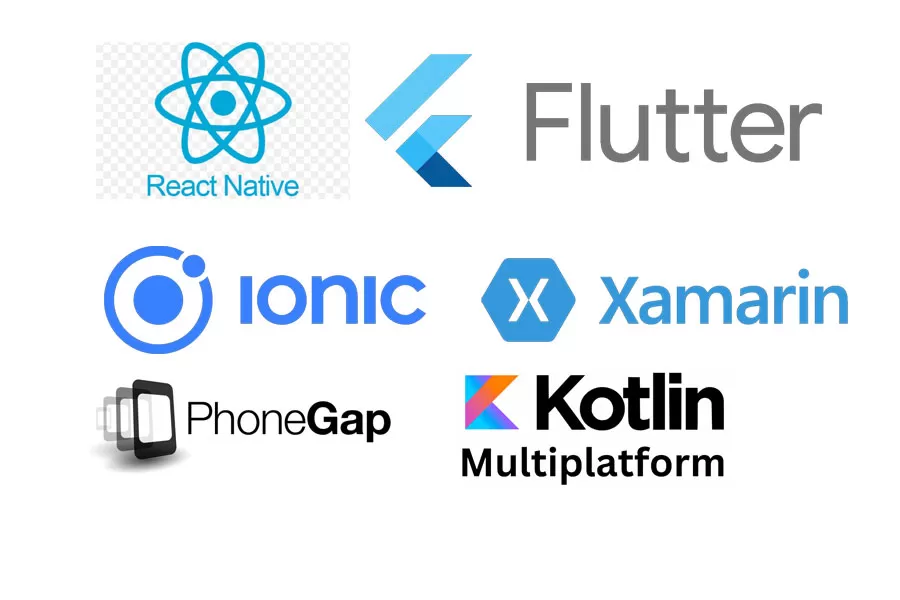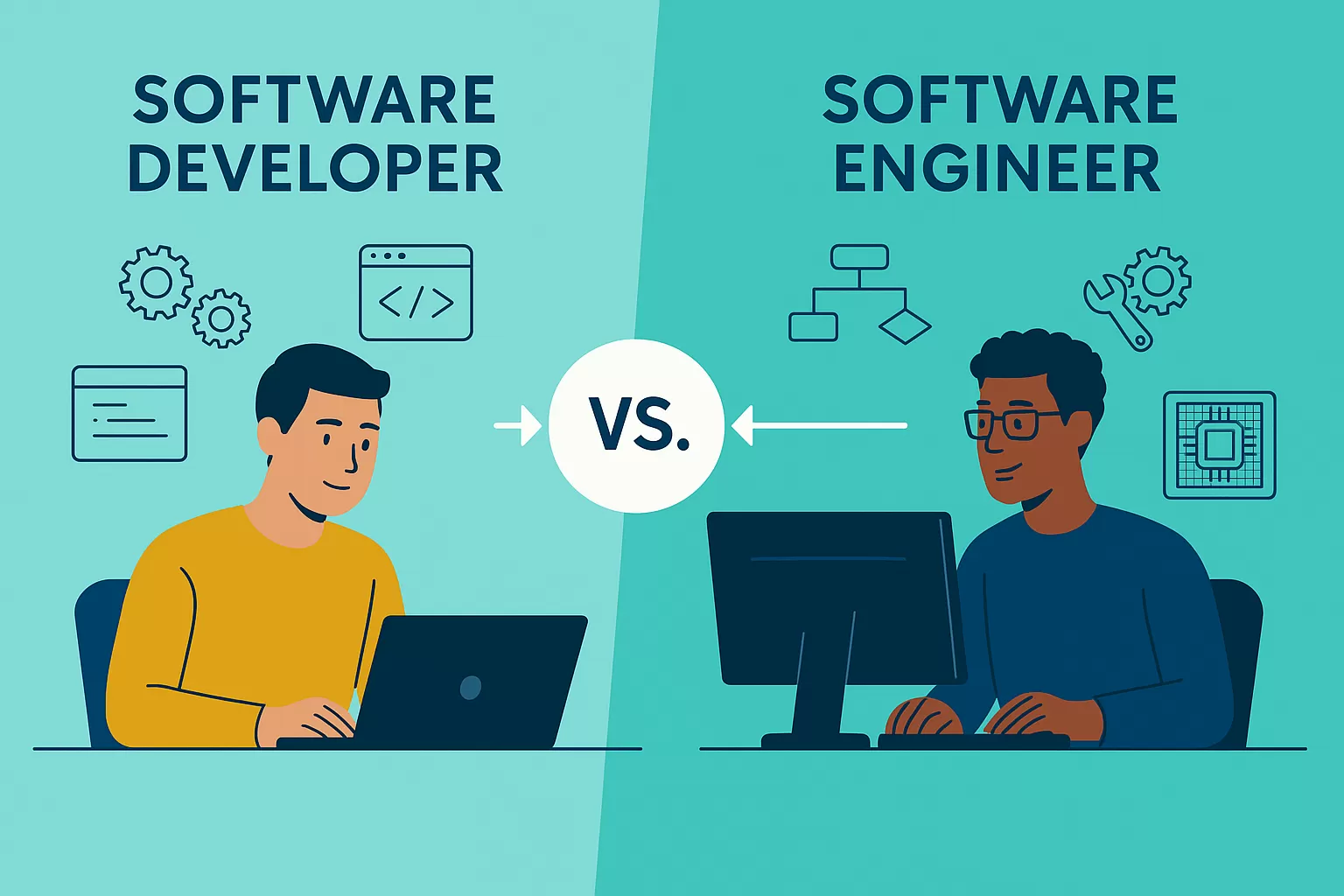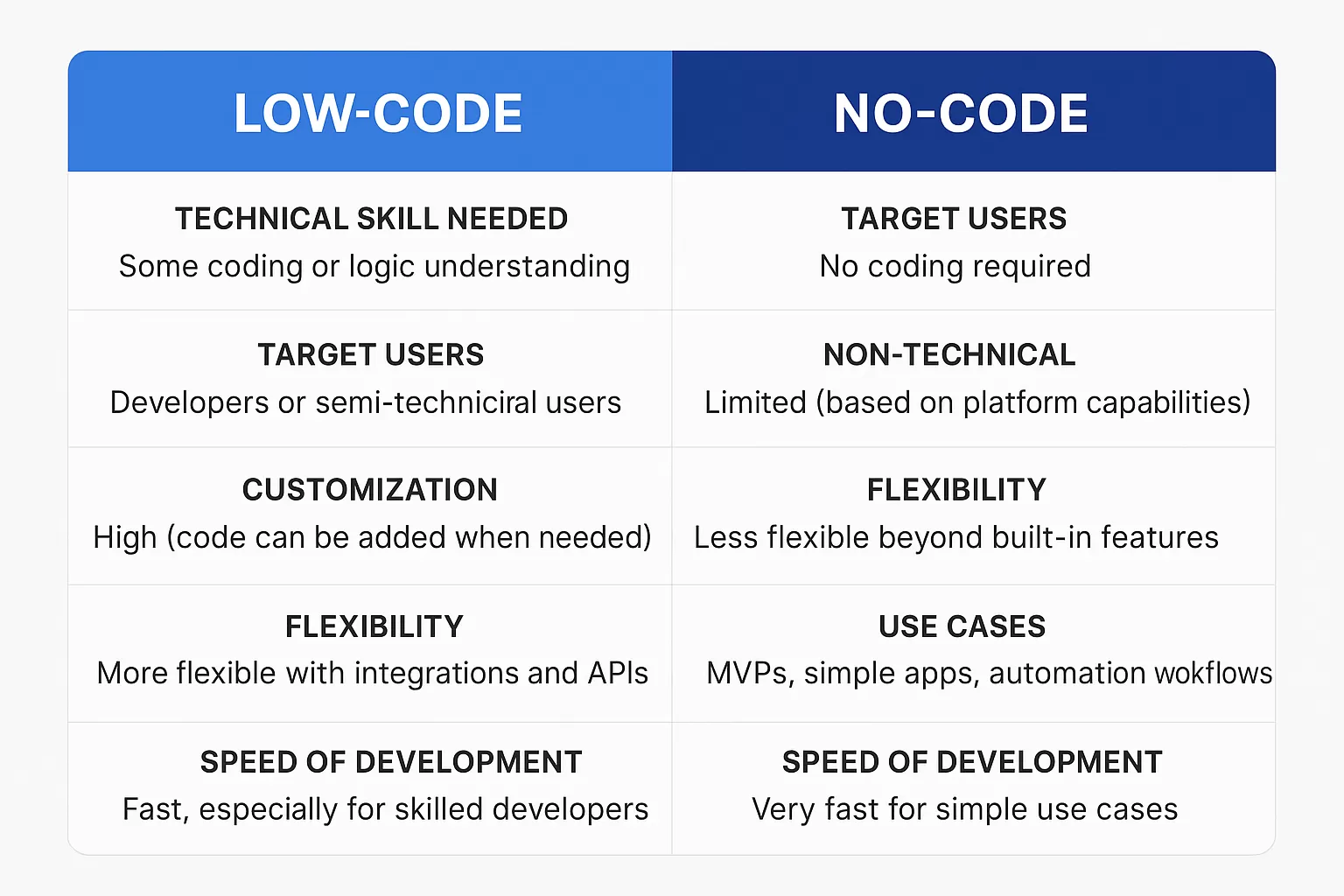AWS vs Azure vs Google Cloud: Which Cloud Service Should You Choose?
When deciding between the top three cloud service providers—Amazon Web Services (AWS), Microsoft Azure, and Google Cloud Platform (GCP)—it's important to evaluate each service's features, capabilities, pricing, and performance based on your specific business needs. Each provider has its strengths and weaknesses, and the right choice depends on various factors like existing infrastructure, use cases, cost, and scalability.
Let’s break down the key aspects to consider when choosing the right cloud service provider.
1. Market Share and Popularity
- AWS (Amazon Web Services):
- Market Leader: AWS is the undisputed leader in the cloud market, with the largest share and the most extensive global infrastructure.
- Global Reach: AWS offers services across more regions and availability zones compared to Azure and Google Cloud, which gives businesses flexibility to scale globally.
- Maturity: AWS has been around the longest (since 2006), which has allowed it to continuously improve its services and offer a robust, mature platform.
- Azure (Microsoft Azure):
- Strong Enterprise Adoption: Azure is widely adopted by enterprises—particularly those with existing Microsoft infrastructure like Windows Server, Active Directory, and SQL Server.
- Hybrid Cloud: Azure has a strong focus on hybrid cloud solutions, making it ideal for companies that need a mix of on-premise and cloud infrastructure.
- Enterprise Integration: Seamless integration with Microsoft software like Office 365, SharePoint, and Teams makes Azure a go-to option for businesses already using these tools.
- Google Cloud (GCP):
- Innovation Leader: Google Cloud shines in big data, machine learning (ML), and artificial intelligence (AI) due to Google's expertise in these areas. It's favored for data analytics and AI workloads.
- Open-Source Integration: GCP supports many open-source tools and is very developer-friendly. It's a strong choice for containerized applications with Kubernetes and other container technologies.
- Less Market Share: Google Cloud holds a smaller market share compared to AWS and Azure but is growing rapidly due to its focus on data-driven applications and developer tools.
2. Service Offerings
Each cloud provider offers a wide range of services, from computing to storage, databases, and AI/ML, but each excels in different areas.
Compute Services:
- AWS: Offers a wide variety of compute services, including EC2 (Elastic Compute Cloud) and Lambda (for serverless applications). AWS has flexible instances with multiple configurations, allowing businesses to optimize costs and performance.
- Azure: Azure’s Virtual Machines (VMs) provide solid compute capabilities, and Azure Functions allows for serverless computing. It’s particularly beneficial for users with existing Windows-based applications.
- Google Cloud: Google Cloud’s Compute Engine offers highly customizable VMs. GCP is highly optimized for containerized applications, especially with Google Kubernetes Engine (GKE), and its serverless offerings (like Google Cloud Functions) are growing fast.
Storage:
- AWS: Amazon offers several storage solutions, including S3 (Simple Storage Service) for object storage, EBS (Elastic Block Storage) for persistent block storage, and Glacier for archival storage.
- Azure: Azure offers Blob Storage for unstructured data and Disk Storage for high-performance workloads. It also has strong hybrid cloud storage options with Azure Stack.
- Google Cloud: GCP’s Cloud Storage is known for its simplicity and scalability. It also offers Persistent Disks for VM storage and Filestore for file storage.
Databases:
- AWS: AWS offers a wide range of managed databases, including RDS (Relational Database Service) for SQL databases and DynamoDB for NoSQL. It also has Aurora, a high-performance database compatible with MySQL and PostgreSQL.
- Azure: Azure offers managed database services like Azure SQL Database and Cosmos DB for NoSQL. It has excellent support for SQL Server due to Microsoft’s background.
- Google Cloud: Google Cloud provides Cloud SQL for relational databases (MySQL, PostgreSQL), Bigtable for NoSQL, and Firestore for flexible NoSQL. Its BigQuery is highly regarded for large-scale data analytics.
AI and ML:
- AWS: AWS has an extensive portfolio of AI/ML tools with SageMaker, which helps users build, train, and deploy machine learning models. It also offers Rekognition for image and video analysis, and Lex for chatbot creation.
- Azure: Azure provides Azure Machine Learning, a comprehensive platform for building, training, and deploying ML models. It also offers Cognitive Services for image recognition, language processing, and other AI tasks.
- Google Cloud: Google Cloud is a leader in AI and ML, with products like TensorFlow, AutoML, and BigQuery ML. Google is known for its expertise in AI-powered products and deep learning.
3. Pricing and Cost Structure
Pricing is a critical factor when choosing between cloud providers. Here’s how each platform compares:
- AWS: AWS follows a pay-as-you-go model, with costs depending on the services and resources used. Pricing can be complex due to the variety of services offered, but it offers detailed cost estimation tools to help manage spending.
- Azure: Azure also uses a pay-as-you-go model and offers discounts for long-term commitment (like reserved instances). Its pricing is competitive, particularly for businesses already invested in Microsoft products.
- Google Cloud: Google Cloud generally offers lower pricing in comparison to AWS and Azure, especially for compute services. Google’s sustained usage discounts make it cost-effective for long-running workloads.
For all three providers, it's important to use cost management tools to monitor and optimize your cloud spending.
4. Security and Compliance
Security is paramount for any business moving to the cloud. All three providers follow industry-standard security practices, but there are some key differences:
- AWS: AWS has a broad range of security certifications (e.g., ISO 27001, SOC 2, PCI DSS), and it provides comprehensive identity and access management (IAM) features. It also has specialized security tools like AWS Shield for DDoS protection and AWS WAF for web application security.
- Azure: Azure offers robust security features, including Azure Security Center for centralized security management and Azure Active Directory (AD) for identity and access management. It is especially suited for enterprises familiar with Microsoft’s security tools.
- Google Cloud: Google Cloud offers strong security features like Google Cloud Identity & Access Management (IAM) and Google Cloud Security Command Center for threat detection. Google’s security is built into its infrastructure, benefiting from Google’s strong track record in data protection.
All three platforms are highly secure, but the specific needs of your organization (e.g., compliance requirements, existing tools) may sway your decision.
5. Integration with Existing Tools
- AWS: AWS integrates well with third-party tools and has a large ecosystem. If you're looking to extend your existing on-premise infrastructure to the cloud, AWS has a broad array of options.
- Azure: If your business relies heavily on Microsoft tools (Office 365, Windows Server, SQL Server), Azure is the natural choice. It’s also strong for businesses transitioning to the cloud from on-premise data centers.
- Google Cloud: GCP is highly developer-centric, making it great for businesses focused on open-source technologies, Kubernetes, and containerized applications. It integrates well with Google’s suite of developer tools like Firebase and Google Kubernetes Engine.
6. Support and Ecosystem
- AWS: AWS has a large and mature support ecosystem with extensive documentation, a vast network of third-party partners, and large community support. It offers premium support plans with 24/7 access to technical support.
- Azure: Azure also has strong customer support options, especially for organizations that rely on Microsoft services. Azure offers Premier support for enterprises with dedicated account managers.
- Google Cloud: Google Cloud’s support is excellent, with resources tailored for developers, including access to Google Cloud Community, developer forums, and GCP training and certification programs.
7. Performance and Reliability
The performance of cloud services is critical to ensure that your applications run smoothly, with minimal latency and high availability. All three providers have established robust infrastructure that delivers excellent performance, but the specifics can vary.
AWS Performance:
- Global Availability: AWS has the largest global infrastructure, with 26 geographic regions and over 80 availability zones. This enables businesses to deploy applications across multiple regions for low-latency access to customers worldwide.
- Compute Optimized Instances: AWS offers compute-optimized instances (e.g., EC2 C-series), which are designed to handle high-performance computing tasks, making it an ideal choice for workloads like big data analytics or machine learning.
- Elastic Load Balancing (ELB): AWS provides Elastic Load Balancing, ensuring that incoming application traffic is distributed evenly across multiple servers, improving uptime and response times.
Azure Performance:
- Global Network: Azure has 60+ regions, and it’s known for being particularly strong in the enterprise market. It also offers ExpressRoute, a private connection between on-premises infrastructure and Azure, offering faster and more secure connections.
- Hybrid Performance: Azure’s hybrid cloud offering with Azure Stack enables businesses to run some applications on-premises and others in the cloud, providing performance consistency across both environments.
- Optimized for Microsoft Workloads: Since Azure integrates tightly with Windows Server, SQL Server, and other Microsoft products, performance for applications built on Microsoft technologies is highly optimized.
Google Cloud Performance:
- Global Network Infrastructure: Google Cloud operates on Google’s private global network, ensuring high-performance connectivity with low latency. It’s ideal for applications that require low-latency, real-time processing.
- Machine Learning and AI: GCP is often the preferred cloud platform for machine learning workloads because it has a high-performance infrastructure, especially for TensorFlow and Google AI.
- Big Data Analytics: Google Cloud is renowned for its BigQuery data warehouse service, offering real-time analytics for massive datasets. It is highly optimized for workloads requiring rapid data analysis and reporting.
8. Developer Tools and Ecosystem
Each cloud platform offers a unique set of developer tools that can impact the productivity and flexibility of your development team. These tools include support for CI/CD (Continuous Integration/Continuous Deployment), containers, devops practices, and automation.
AWS Developer Tools:
- Elastic Beanstalk: AWS provides Elastic Beanstalk, which simplifies the process of deploying, managing, and scaling web applications without worrying about the underlying infrastructure.
- CodePipeline & CodeDeploy: AWS offers CodePipeline (for CI/CD) and CodeDeploy (for automatic code deployment), which are fully integrated with other AWS services, streamlining development workflows.
- ECS and EKS: For containerized applications, AWS offers Elastic Container Service (ECS) and Elastic Kubernetes Service (EKS). These services make it easier to orchestrate and manage Docker containers and Kubernetes clusters.
Azure Developer Tools:
- Azure DevOps: Azure offers a comprehensive DevOps suite, including Azure DevOps Services for CI/CD, version control, and release management. It's highly integrated with Visual Studio and GitHub, making it ideal for developers who are already part of the Microsoft ecosystem.
- Azure Kubernetes Service (AKS): Azure has a fully managed Kubernetes service, AKS, that simplifies container orchestration and management. It’s well-suited for teams building microservices-based applications.
- Azure Functions: For serverless computing, Azure offers Azure Functions, which allows developers to run code without managing the underlying infrastructure. It also integrates with other Azure services like Event Grid and Logic Apps.
Google Cloud Developer Tools:
- Google Kubernetes Engine (GKE): Google Cloud offers GKE, which is regarded as one of the best platforms for running Kubernetes clusters. It’s highly optimized and scales automatically, making it the go-to choice for containerized applications.
- Cloud Build: Google Cloud’s Cloud Build enables automated builds and deployment pipelines, integrating seamlessly with other Google Cloud tools.
- Firebase: For mobile application development, Firebase is one of Google Cloud's standout products, providing backend-as-a-service for real-time databases, authentication, analytics, and more.
- Google Cloud Functions: Google Cloud’s serverless platform allows developers to build event-driven applications without provisioning or managing servers.
9. Industry-Specific Solutions
Each cloud provider offers industry-specific solutions that cater to unique needs, whether for government, healthcare, finance, retail, or other sectors.
AWS Industry Solutions:
- Healthcare: AWS offers services like Amazon HealthLake, designed to help healthcare organizations store, transform, and analyze healthcare data. AWS also has HIPAA compliance for data security.
- Retail: AWS provides industry-specific tools like AWS Lambda for serverless computing, Amazon Personalize for product recommendations, and Amazon Forecast for demand forecasting in retail.
- Finance: AWS is a top choice for financial institutions, providing tools like AWS CloudHSM for hardware security, Amazon Aurora for database management, and services that comply with regulatory standards like PCI DSS.
Azure Industry Solutions:
- Healthcare: Azure offers a Health Data Service for managing health data and building secure, compliant apps. It also supports FHIR (Fast Healthcare Interoperability Resources), which is important for medical data interoperability.
- Finance: Azure has a strong offering for the financial services sector, including Azure Blockchain Service, Azure SQL Database, and Azure AI for financial analysis.
- Government: Azure provides government cloud solutions, specifically tailored for public sector organizations, ensuring compliance with various governmental regulations and offering high-security data management.
Google Cloud Industry Solutions:
- Media & Entertainment: Google Cloud excels in video processing, media storage, and AI-powered content solutions. Services like Google Cloud Video Intelligence are used for analyzing video content for media organizations.
- Healthcare: Google Cloud is becoming more involved in the healthcare space with its Google Health initiative and Cloud Healthcare API for enabling interoperability in the healthcare industry.
- Retail: Google Cloud offers AI-powered retail solutions like Google Cloud Retail, which helps businesses enhance customer experience using predictive analytics and machine learning for product recommendations and demand forecasting.
10. Innovation and Future Outlook
As cloud technologies continue to evolve, innovation in AI, machine learning, and quantum computing will be key differentiators. Here’s what each cloud provider is focusing on for the future:
AWS Innovation:
- Quantum Computing: AWS is investing heavily in quantum computing with its Amazon Braket service, providing access to quantum hardware and simulators for developers and researchers.
- Edge Computing: AWS has Wavelength, a service designed to bring applications to the edge of 5G networks, enabling low-latency applications.
- AI/ML Expansion: AWS continues to invest in expanding its AI/ML services, such as SageMaker for easy model building, training, and deployment.
Azure Innovation:
- Azure Quantum: Azure has its own quantum computing initiative called Azure Quantum, which is expected to make significant strides in solving complex computing problems.
- Hybrid and Multicloud Solutions: Azure is pushing the limits of hybrid cloud capabilities, offering a comprehensive approach to integrating on-premise systems with cloud resources.
- AI and Automation: Azure has deepened its investment in AI-driven solutions, such as Azure Cognitive Services for vision, speech, language, and decision-making capabilities.
Google Cloud Innovation:
- Quantum Computing: Google Cloud’s Google Quantum AI is working on solving real-world problems with quantum computing, building on their Sycamore quantum processor.
- AI and ML Leadership: Google is at the forefront of AI and machine learning with products like TensorFlow and AI Platform that provide developers with tools to innovate at scale.
- Serverless and Edge Computing: Google Cloud is expanding its serverless computing offerings with Cloud Run, which enables developers to run containers without managing servers. It also invests in edge computing for real-time, low-latency applications.
Conclusion: Which Cloud is Best for You?
- Choose AWS if you need enterprise-grade solutions with a global infrastructure, a wide range of services, and a mature platform. AWS is ideal for businesses looking for flexibility, scalability, and extensive service options across all industries.
- Choose Azure if your business is already embedded in the Microsoft ecosystem and needs hybrid solutions, strong enterprise integration, or has specific compliance needs. Azure is also great for industries with large Microsoft tool dependencies, like healthcare and financial services.
- Choose Google Cloud if your focus is on data analytics, AI/ML, big data processing, and containerization. Google Cloud’s leading-edge solutions for AI, quantum computing, and open-source development make it a great choice for developers and businesses pushing the boundaries of technology.
Ultimately, each provider offers strengths that can cater to different business needs. By evaluating your specific use cases, budget, and technical requirements, you can make an informed decision about which cloud service best aligns with your business goals.











